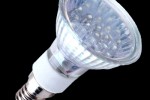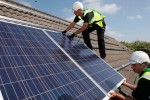Homes that are more energy efficient have a lower risk of defaulting on mortgage repayments, according to reports in Bloomberg which highlight findings from the first study into energy efficiency and mortgage repayment ability.
Homeowners that have taken steps towards making their homes more energy efficient are 33% less likely to default on mortgage repayments than the average. Researchers have attributed these findings to the savings that can be seen on energy bills through improving efficiency standards.
By reducing monthly household bills, efficiency gains can make it easier for homeowners to meet their mortgage repayments, even in times of acute financial stress.
The study conducted by the University of North Carolina in partnership with energy group the Institute for Market Transformation was the first of its kind, examining whether there was a correlation between energy efficiency and mortgage repayment consistency.
Mortgage lenders have been traditionally reluctant to consider energy efficiency features in calculating the risk of mortgage default. Now, with evidence demonstrating a clear link, it is hoped that lenders will take into account the positive impact energy efficiency has on the ability to repay.
Cliff Majersik, IMT’s executive director, said that the study demonstrates a widely held belief that cheaper energy bills make mortgage repayments a more affordable cost.
“It stands to reason that energy-efficient homes should have a lower default rate, because the owners of these homes save money on their utility bills, and they can put that money toward their mortgage payments. We long believed this to be the case, and now this study proves it. Successful housing market reforms will require reconsidering the risk factors in mortgage default, including energy costs.”
With uncertainty amongst mortgage lenders at an all-time high, some are now calling for energy efficiency upgrades to be given more weight in decisions over whether to lend.
Energy-efficient homes require less energy to heat and cool, and insulation works to effectively retain the heat that is generated. As a result, investing in energy-efficiency improvements can yield ongoing savings that pay for themselves in just a few years.
This necessarily means that homeowners with energy saving measures in place have more money available every month, making mortgage repayments a proportionately less significant cost.
The IMT also pointed out that owners tend to stay in energy-efficient homes for much longer than the average – another consideration mortgage lenders might want to factor in to their risk calculations.
Energy scholar and energy expert Daniel Yergin suggested that homeowners should be encouraged to make their homes more energy efficient, reducing utility bills and saving on the nation’s energy demands.
“Improving energy efficiency in the home can save hundreds, sometimes thousands of dollars a year in energy costs. Encouraging more people to make efficiency gains means homeowners have more money in their pockets, but also that the aggregate domestic demand for energy will fall. And given the energy challenges we face in the coming decades, it makes sense to push for change now.”
Domestic energy usage is largely concentrated around heating, with the bulk of consumption in room and water heating applications. Improving insulation alone can contribute up to $700 a year in energy bill savings.
Image source: baufritz














 Filipino Inventor Turns Plastic Trash Into Liquid Gold
Filipino Inventor Turns Plastic Trash Into Liquid Gold Philippine Senate Approves Alternative Fuel Vehicle Act
Philippine Senate Approves Alternative Fuel Vehicle Act Air Pollution Absorbing Paint - Manila Experiments with 'Purifying Paint'
Air Pollution Absorbing Paint - Manila Experiments with 'Purifying Paint' Garbage Granulator - waste management solution
Garbage Granulator - waste management solution







Pingback: How Frequently Should You Service Your Equipment?
Pingback: Your Questions About Sustainable Energy | Renewable Energy